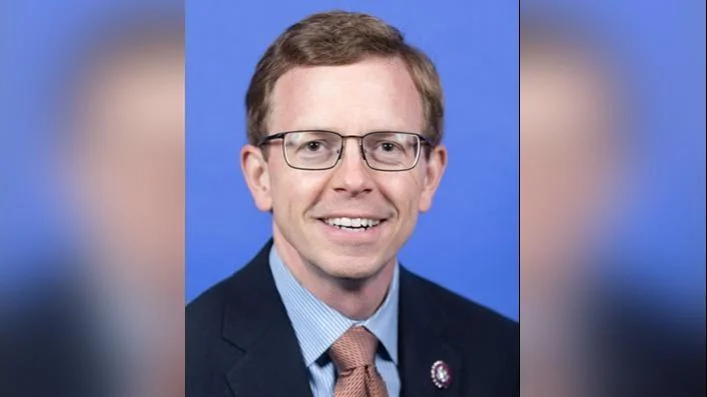Dusty Johnson U.S. House of Representatives from South Dakota's at-large district | Official U.S. House Headshot
Dusty Johnson U.S. House of Representatives from South Dakota's at-large district | Official U.S. House Headshot
U.S. Representative Dusty Johnson and Senator Deb Fischer have introduced the Fair SHARE Act, a legislative proposal aimed at ensuring electric vehicles (EVs) contribute to the Highway Trust Fund (HTF). The act proposes imposing one-time fees on EVs, similar to contributions made by internal combustion vehicles through gas taxes.
"The Highway Trust Fund is on the road to insolvency," stated Johnson. He emphasized the need for EVs to "pay their fair share" in maintaining infrastructure. Senator Fischer added that since EVs can weigh significantly more than gas-powered cars, they should contribute similarly to road upkeep.
Henry Hanscom from the American Trucking Associations highlighted that while trucks make up a small percentage of highway vehicles, they bear a significant portion of HTF costs. He supports the act as a step towards equitable revenue sources for infrastructure funding.
Dave Bauer of the American Road & Transportation Builders Association noted that traditional fuel purchasers have long supported road maintenance, with electric vehicles being an exception. Jeff Shoaf from The Associated General Contractors of America echoed this sentiment, stating that closing this loophole would ensure fairness in infrastructure funding.
The Fair SHARE Act outlines a $1,000 fee on all-electric vehicles at sale and an additional $550 fee on heavy battery modules over 1,000 pounds. These fees are intended to reflect average consumer contributions via gas taxes over ten years.
The legislation is cosponsored by Senators Pete Ricketts and Cinthia Lummis, along with Representative Dave Taylor. It has garnered support from several organizations including the American Society of Civil Engineers and National League of Cities.
The HTF currently faces financial challenges due to increased adoption of fuel-efficient and electric vehicles, which do not contribute through federal gas taxes. Projections indicate potential insolvency by 2028 without intervention.
This proposed measure aims to address these issues by implementing manufacturer-level fees on EVs, ensuring all vehicles contribute fairly to national infrastructure needs.

 Alerts Sign-up
Alerts Sign-up